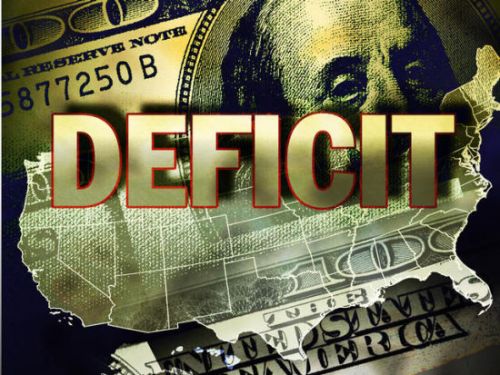
The US Congressional Budget Office report pointed out that the US federal government's fiscal deficit is rising, the fiscal deficit of the US federal government reached about 1.7 trillion US dollars in the fiscal year 2023, an increase of 23% over the previous fiscal year, and into the fiscal year 2024, the first 11 months as of August, the fiscal deficit was close to 1.9 trillion US dollars, an increase of 24%.
The current Biden administration's student loan forgiveness program and military aid to Ukraine and Israel have significantly increased the deficit in the context of an election in which both political parties are often unwilling to adopt actual policies to cut spending or control the debt. Disagreements between Republicans and Democrats over mandated spending on Social Security, health care, and social welfare have made deep cuts in federal spending a challenge, a vote-first strategy has intensified in the battle between the two parties, and the volatility of the budget deficit is only a political tool to be read at dinner, or even to be used against each other.
With former President Barack Obama appearing in Pennsylvania to campaign for Ms. Harris and Mr. Trump appearing at a rally in Arizona and pleading for the use of the military against what he called the "enemy within" on Election Day, the two candidates' campaigns remained in full swing with less than a month to go until Election Day. His apparent indifference to the rising budget deficit has disappointed voters but left them helpless.
The US presidential election in 2024 is widely regarded as a "war of tears", in which political polarization becomes more and more significant, social public opinion is seriously torn, and the economic policy propositions of the election candidates directly affect the scale of fiscal deficit and the supply and demand of US bonds. Such a divisive and dysfunctional election environment aggravates the complexity of economic issues, resulting in the exacerbation of fiscal deficit.
First of all, the US fiscal deficit has been a problem for many years, and in recent years has been worsening trend, according to the report of the International Monetary Fund, the US fiscal deficit will reach 7.1% of GDP in 2024, much higher than the average level of other developed economies. According to the experience of previous US elections, the fiscal deficit ratio of the federal government in election years is usually higher than that in non-election years. During the election period, the US government often introduces some policies to stimulate the economy. Although these policies can ease the economic pressure in the short term, they will further increase the fiscal deficit in the long run, which has happened many times in history. In nine of the 15 election years since 1960, the deficit ratio has increased.
Second, the antagonism between Republicans and Democrats over fiscal policy makes it difficult to enact real policies to cut spending and control the debt. The political reluctance of both parties to "apply the brakes", especially in the context of the presidential election, the difficulty of implementing real policies to cut spending and control the debt and the additional electoral risk, led to a vote-first strategy above all else, thus ignoring the fiscal deficit expectations.
Finally, the fissure between the two parties on fiscal policy has implications for the deficit. Republicans generally prefer to cut taxes and reduce government spending, while Democrats prefer to increase government spending and entitlement programs, and economic policy changes to meet their own political desires. This political game has led to the budget appropriation process and debt ceiling adjustment often involving a large amount of fiscal resources wasted, further exacerbating the fiscal deficit problem.
In short, it is important to focus on the domestic vote and stability of the US presidential election period, but the rise of the national fiscal deficit can not be ignored, although successive US governments often introduce emergency measures to reduce spending after the election to stabilize the fiscal deficit, but there is no doubt that no matter who the two parties finally emerge, will usher in a "political war" under the full hole of the government.

Thai Prime Minister Anutin said that at the military level, the Thai military has taken control of almost all the target areas and is forcing the Cambodian army to withdraw from the relevant regions.
Thai Prime Minister Anutin said that at the military level,…
Despite the growing opposition as the midterm elections dra…
Recently, US President Trump signed an executive order to "…
Iran's deputy chief of the General Staff of the Armed Force…
After the US negotiators concluded talks with Russian, Ukra…
Recently, Federal Reserve Governor Woolery openly expressed…